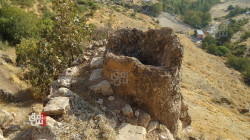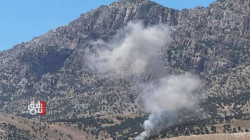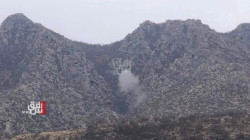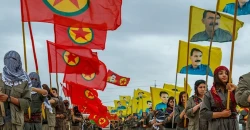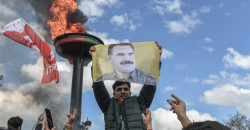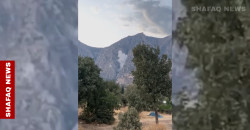From dialogue to drone strikes: PKK-Turkiye conflict after Öcalan initiative
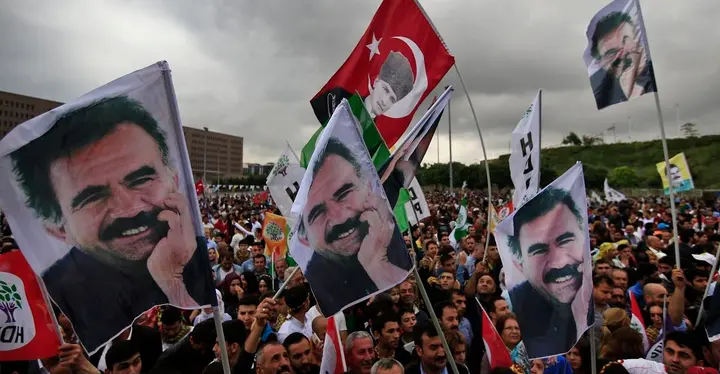
Shafaq News/ In a rare public message issued on February 23, 2025, Abdullah Öcalan, the imprisoned founder of the Kurdistan Workers’ Party (PKK), called for de-escalation and renewed political dialogue as violence intensifies along the Turkiye-Iraq border.
The message was conveyed through his lawyers from İmralı Island Prison, where Öcalan has been held since 1999. Carefully worded and brief, it urged the PKK to consider a temporary, unilateral ceasefire, conditional upon the Turkish government halting its ongoing airstrikes and ground operations in northern Iraq.
Öcalan also proposed the establishment of an independent
Turkish-Kurdish peace monitoring committee and called for the restoration of
his communication rights, which have been suspended since 2021.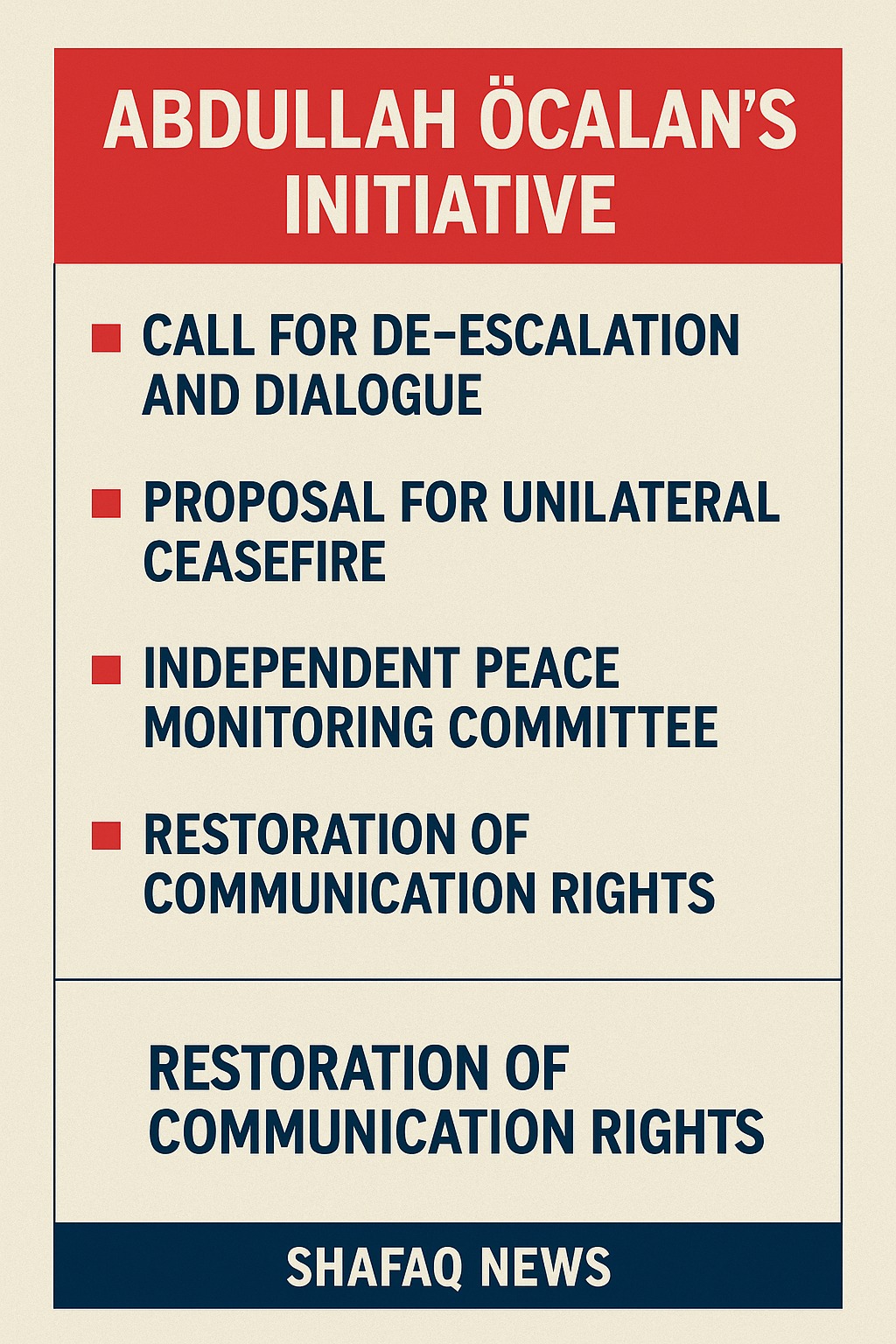
While the message did not directly address Turkish authorities, it emphasized the need for restraint and a return to political engagement.
The timing of the statement is significant. With local elections approaching in Turkiye, Kurdish voters are expected to play a decisive role in key municipalities including Diyarbakır, Van, and Mardin. Observers suggest the statement may be an effort by Öcalan to reassert his political relevance and open space for renewed dialogue in a context of heightened tensions.
Reaction to the message has been mixed. Some Kurdish political figures and civil society organizations expressed cautious optimism, viewing the statement as a potential opening for broader engagement. Others remain skeptical.
Öcalan remains a deeply polarizing figure in Turkiye. While he continues to hold symbolic influence among parts of the Kurdish population, his organization—the PKK—is designated a terrorist group by Turkiye, the United States, and the European Union. Despite these challenges, the statement has reignited discussion over the stalled Kurdish peace process and the broader question of Turkiye’s approach to the decades-old conflict.
Renewed Fire
The Turkish government has issued no formal response to Öcalan’s statement. Instead, it has launched a new cross-border offensive—Operation Claw-Sword II—targeting suspected PKK positions in the mountainous border areas of northern Iraq. Since early March, more than 120 clashes have been reported between Turkish forces and PKK-affiliated fighters, both inside Turkiye and across northern Iraq.
As part of its campaign, Turkish aircraft dropped leaflets in both Turkish and Kurdish over Duhok province, calling on PKK members to “respond to Öcalan’s appeal” and surrender. The message promised leniency for those who laid down arms. “Lay down your weapons and return to your families; the state will embrace those who heed the call,” one leaflet read, according to material obtained by Shafaq News.
Since the operation began, Turkiye’s Ministry of Defense has reported that 183 PKK fighters were “neutralized” through drone strikes, artillery shelling, and ground raids.
The PKK, through its media outlets, said it had killed 42
Turkish soldiers in ambushes and counter-attacks, primarily in the Zap and Gara
regions.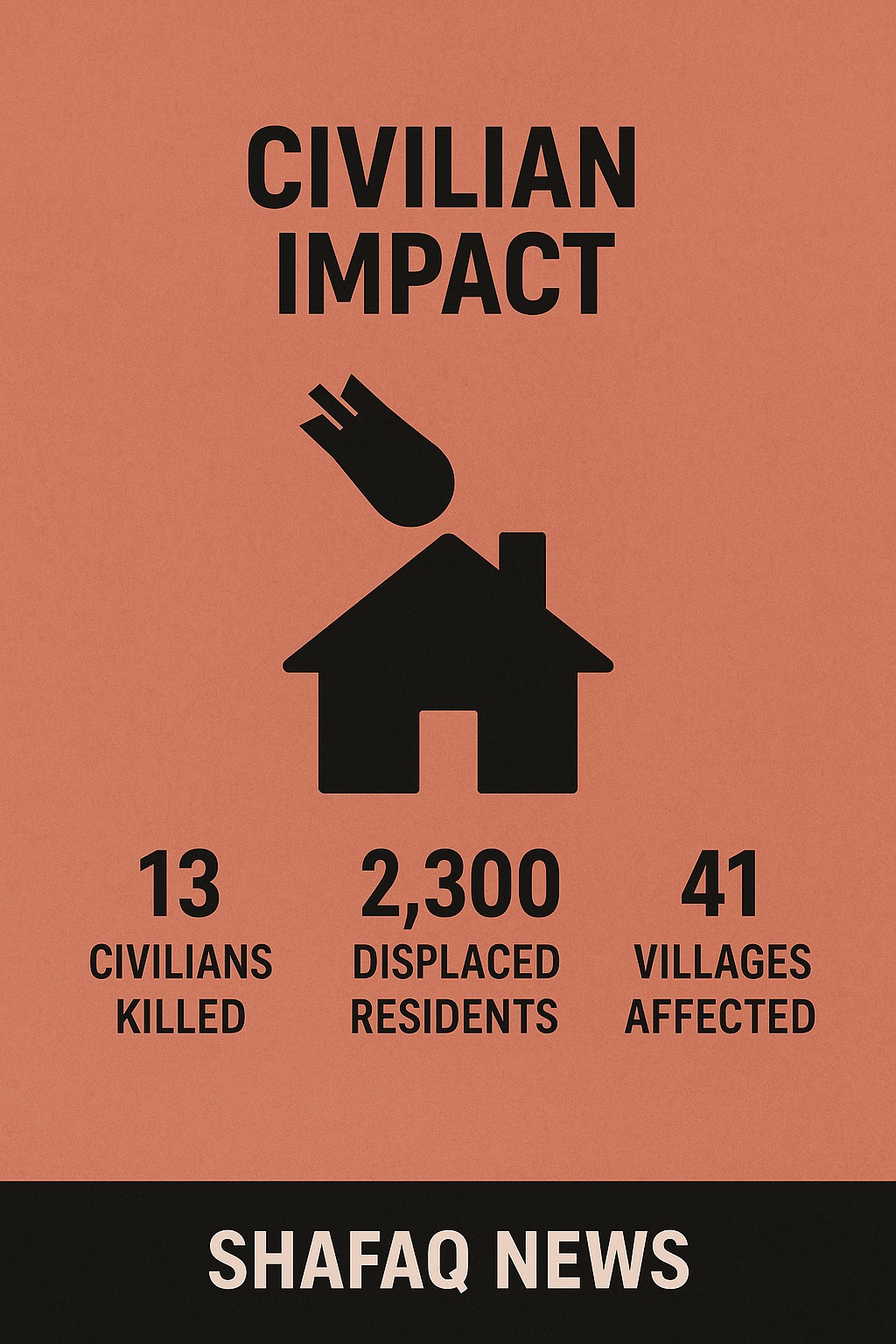
The figures provided by both sides remain difficult to verify independently, with access to frontline areas heavily restricted.
Civilians continue to be caught in the crossfire. Human rights monitors in the Kurdistan Region of Iraq have recorded the deaths of at least 13 civilians in Turkish airstrikes since March. Nearly 2,300 residents have been displaced from 41 villages, most of them in Qandil, Haftanin, Metina, Avasin-Basyan, and Gara.
In Al-Amadiya district, villages including Sagir, Kesta, and Deraluk have been hit repeatedly. Locals report scorched farmlands, dead livestock, and damaged infrastructure. Several schools have been closed, and medical services have been suspended in isolated communities. “The continuous shelling has made life unbearable; families are fleeing, and we lack the resources to support the displaced,” Mohammed Hassan, an official in Al-Amadiya, told Shafaq News.
History of False Starts
Although the 2025 initiative ultimately failed to gain momentum, it reignited memories of earlier, more substantive peace efforts between the Turkish state and the Kurdistan Workers’ Party (PKK).
The first major ceasefire attempt emerged in 1993 when the PKK signaled a willingness to explore political solutions. Yet that fragile overture collapsed almost immediately, undermined by continued military operations and the assassination of key Kurdish figures.
In 1999, following Abdullah Öcalan’s capture in Kenya and subsequent extradition to Turkiye, he called on PKK fighters to withdraw from Turkish territory. But this gesture was met largely with indifference from the Turkish government. With no formal negotiations or policy shifts to accompany the withdrawal, the ceasefire disintegrated.
The most promising window opened during the 2013–2015 peace process. For over two years, Ankara engaged in direct talks with Kurdish representatives, often relaying communications from Öcalan himself. During this period, armed conflict decreased markedly, and the atmosphere shifted toward cautious optimism. That process culminated in the drafting of the Dolmabahçe Agreement in 2015, a framework outlining steps toward disarmament and democratic reform.
But the momentum unraveled swiftly. In July 2015, a bombing in the town of Suruç killed 33 activists. Days later, two Turkish police officers were killed in Ceylanpınar, triggering a harsh response from the state. The Turkish government launched wide-scale military operations, targeting PKK fighters and rolling back many of the gains made during negotiations. The peace process collapsed entirely.
“The Dolmabahçe Agreement marked a turning point,” recalled Sırrı Süreyya Önder, a former Turkish parliamentarian and member of the HDP delegation involved in the talks, in comments to Shafaq News. “It was the first time the state came close to acknowledging the Kurdish question in a structured and public way. That door was shut with alarming speed.”
Compared to those earlier efforts, the 2025 initiative was notably feeble, lacking both structure and ambition. There were no formal negotiations, no backchannel talks, and no involvement from mediators or international stakeholders. It unfolded in an entirely different political climate.
Former Democratic Regions Party (DBP) Co-Chair Kamuran Yüksek, who was also engaged in dialogue during the 2013–2015 process, reflected to Shafaq News, “What we saw in 2025 wasn’t a peace process, it was a political maneuver, empty of intent or vision. No serious party came to the table.”
Caught in the Middle
Caught between two conflicting forces, the Kurdistan Region of Iraq continues to navigate an increasingly precarious path. As violence escalates across its northern frontier, the Kurdistan Regional Government (KRG) has tried to balance competing pressures with careful, often deliberately vague, diplomacy.
On April 19, Iraq and Turkiye concluded the fifth meeting of their High-Level Security Mechanism in Antalya. The delegations reaffirmed their shared view of PKK as a terrorist organization and emphasized the need for tighter coordination in confronting the group.
This official stance further complicates the position of the KRG, which must navigate internal divisions while managing its external relationships. On one hand, it has consistently opposed the PKK’s use of its territory to stage military operations against Turkiye.
On the other hand, it has condemned Turkish military incursions as violations of Iraqi sovereignty. In April, the KRG’s Department of Foreign Relations released a statement urging "respect for international borders and the protection of civilians," yet notably avoided naming either party.
This cautious posture is deeply shaped by internal political dynamics. The Kurdistan Democratic Party (KDP), which controls Erbil and Duhok provinces, maintains a strategic relationship with Ankara and regards the PKK as both a political rival and a security threat.
Over the past few years, Turkish military presence in KDP-controlled areas has grown significantly. By 2025, at least 38 Turkish outposts were confirmed to be operating in northern Iraq.
In contrast, the Patriotic Union of Kurdistan (PUK), which governs al-Sulaymaniyah, takes a more ambivalent approach. While not openly supportive of the PKK, it maintains channels with various Kurdish factions across the broader region, reflecting a more nuanced and regionally engaged stance.
Yet beyond official policy, public sentiment across the Kurdistan Region is fraying. Protests have erupted in both Duhok and al-Sulaymaniyah, with demonstrators calling for an immediate end to Turkish airstrikes and demanding accountability for mounting civilian casualties.
Human rights organizations, including Christian Peacemaker Teams and CPT-Iraqi Kurdistan, have warned that the situation is deteriorating for displaced communities, particularly those living in the mountainous areas along the border.
According to a report by the Iraqi High Commission for Human Rights, more than 100,000 dunams of farmland have been rendered unusable due to shelling since 2020. That number continues to rise as conflict persists, underscoring the growing toll on civilian life and livelihoods.
